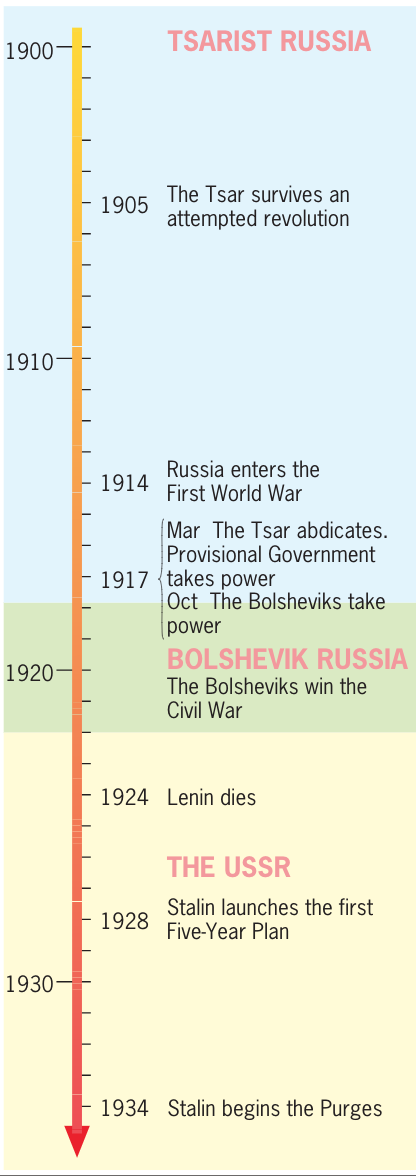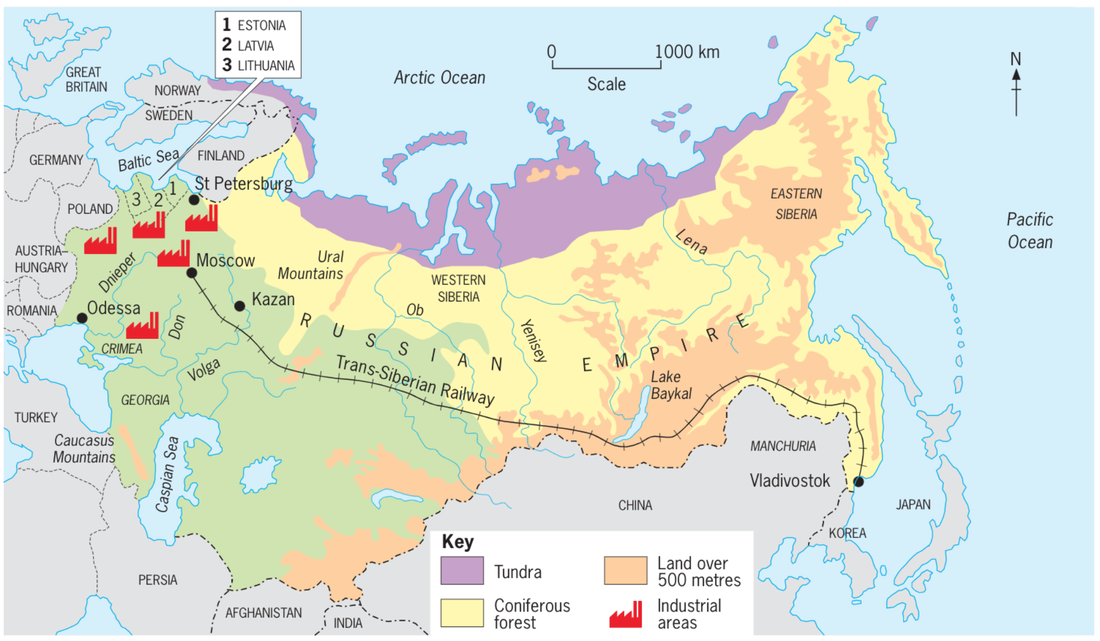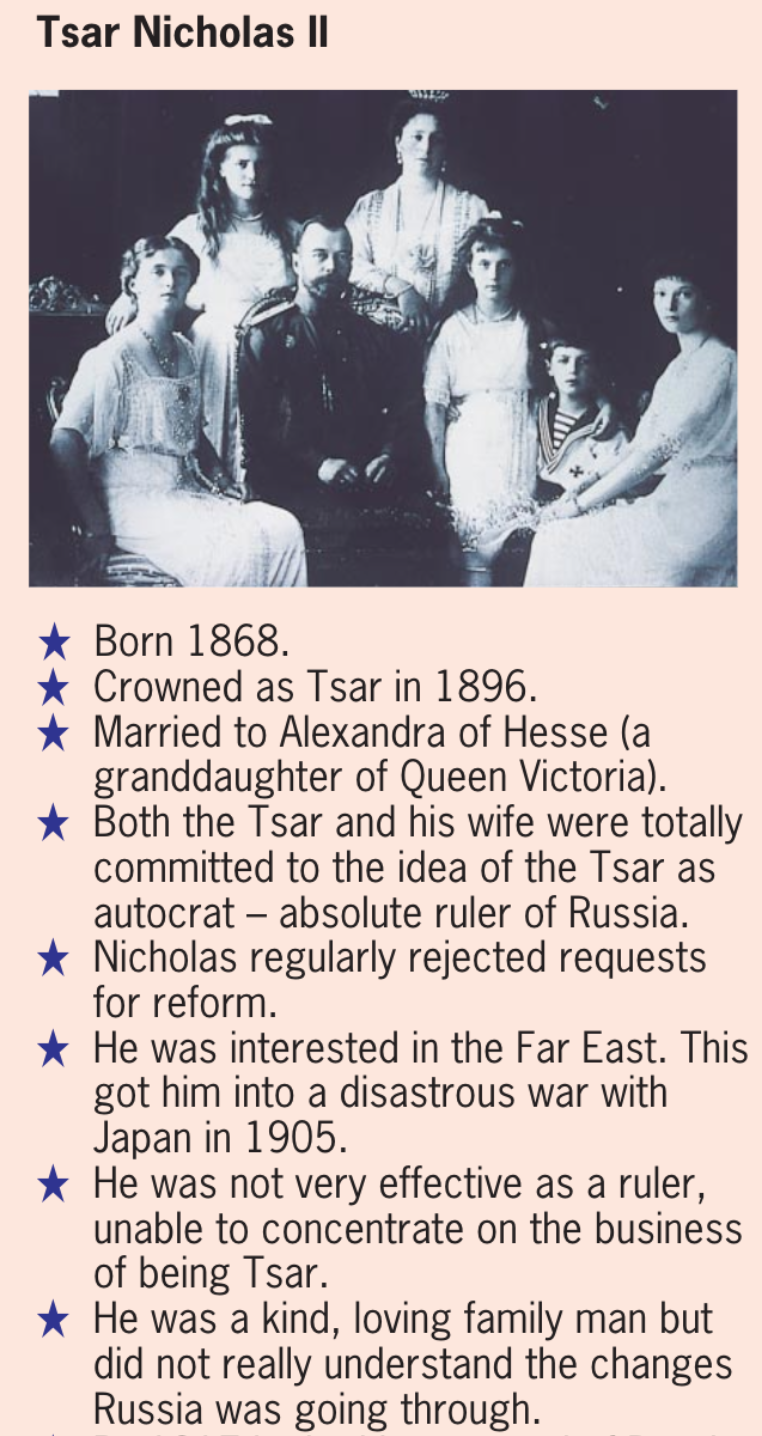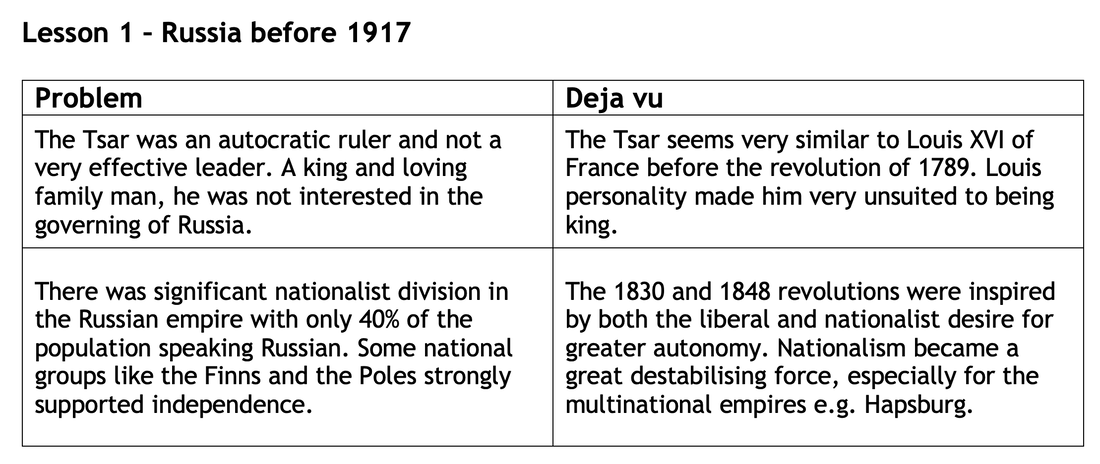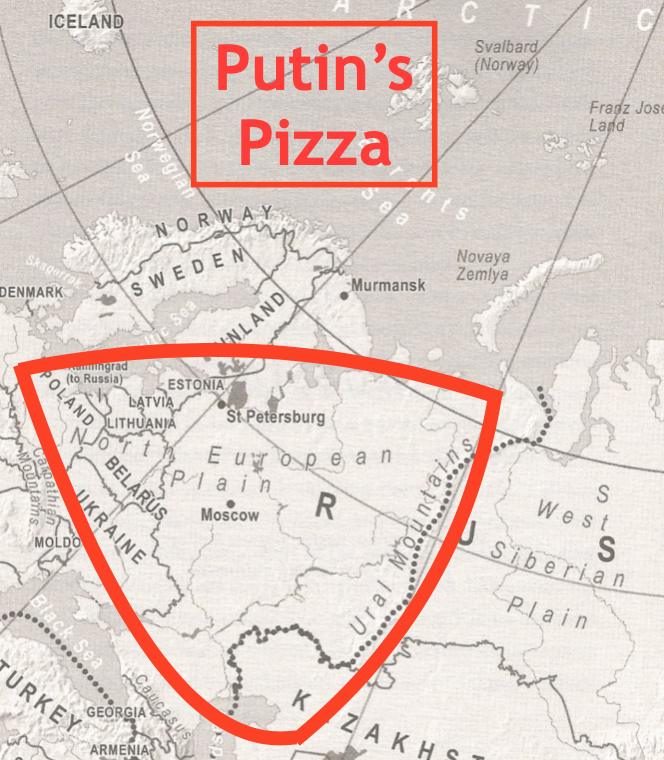Lesson 1 - Russia Before 1917, déjà vu?
In one of our previous lessons we were looking at the First World War and in it I wrote: 'In the summer of 1916, General Brusilov (Brusilov Offensive) led a stunning offensive against the Austrians. Three Russian armies broke through the Austrian lines and captured the city of Lutsk on 8 June. But by August, the Russian advance was running out of steam. Another 500,000 Russians were dead or wounded, adding to the half million dead or wounded already in 1916. Such losses intensified Russia’s domestic problems.' In this first lesson we are going to look more closely at those 'domestic problems' because those long-term problems led to (arguably) the most significant event of the 20th century, the Bolshevik Revolution of 1917.
You know you're getting better at doing history when you start to see things you've seen before. If you can start to see links between separate events and patterns in the chaos of the past, you are beginning to think historically. History starts to become more interesting when it is more than simply 'one damn thing after another'. History also starts to become more useful, because you start to see those links and patterns in your daily life. (I wrote those words before the 2022 Russian invasion of Ukraine...)
Activity
You've studied revolutions a number of times before, what did they have in common? This is a typical IB style question because its asking you to compare and contrast events from different times and places in history. The challenge is to think in an altogether more abstract way, to identify common themes and recurring patterns that help you understand historical events (and current/future events) in a wider historical context.
As you read through your textbook try to identify problems in Russia that seem similar to the problems we have seen before in earlier revolutions in America in the 1770s, France in 1789, Europe in 1830 and 1848 and Meiji Japan. But also expect to see things that were new and perhaps unique to Russia before 1917. Create a table like the following to make your notes as you work your way through pages 98-103. Try to identify at least five similar problems.
Activity
You've studied revolutions a number of times before, what did they have in common? This is a typical IB style question because its asking you to compare and contrast events from different times and places in history. The challenge is to think in an altogether more abstract way, to identify common themes and recurring patterns that help you understand historical events (and current/future events) in a wider historical context.
As you read through your textbook try to identify problems in Russia that seem similar to the problems we have seen before in earlier revolutions in America in the 1770s, France in 1789, Europe in 1830 and 1848 and Meiji Japan. But also expect to see things that were new and perhaps unique to Russia before 1917. Create a table like the following to make your notes as you work your way through pages 98-103. Try to identify at least five similar problems.
Extension
|
The diplomatic journalist Tim Marshall wrote a best selling book in 2016 about how physical geography explains global politics. He updated the book 'Prisoners of Geography' in 2019. In it he wrote an interesting chapter about Russia and refered to some of the history we have mentioned/studied before - Catherine the Great, Napoleonic Wars, Crimean War, Russo-Japanese war, WWI - and many events we will study in the coming months. Most interesting was his analysis (and prediction) of what was likely to happen in the Crimea. He was certainly very prescient and insightful about much of what has happened since February 2022, although he did conclude that full scale invasion of bordering states was unlikely because, 'President Putin is a student of history. He appears to have learnt the lessons of the Soviet years, in which Russia overstretched itself and was forced to contract.' You can read an edited extract here and the full account here.
|

